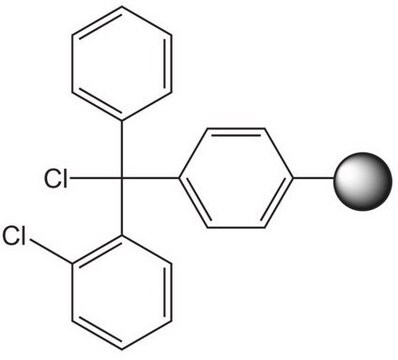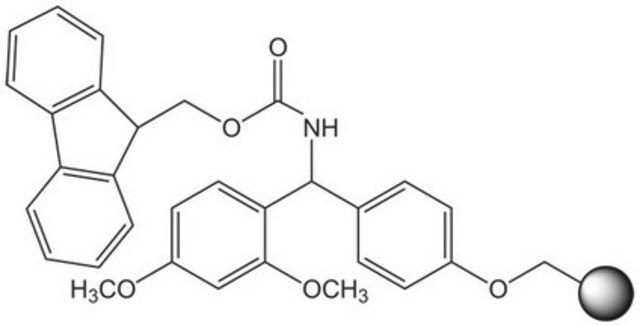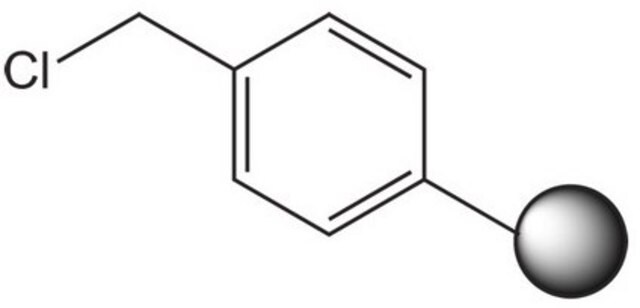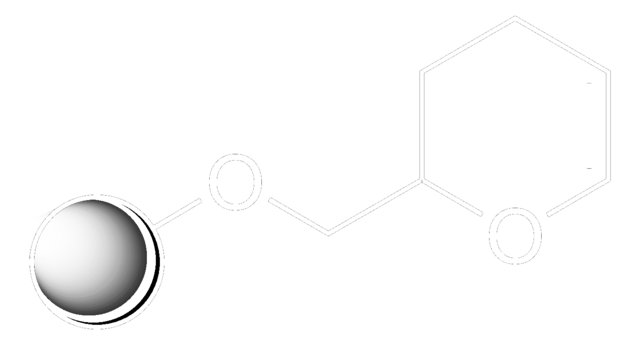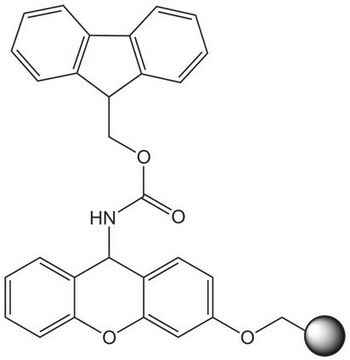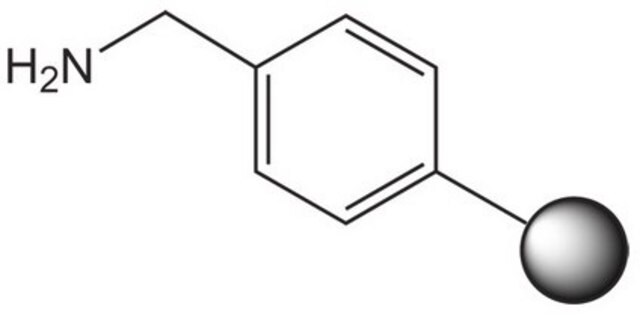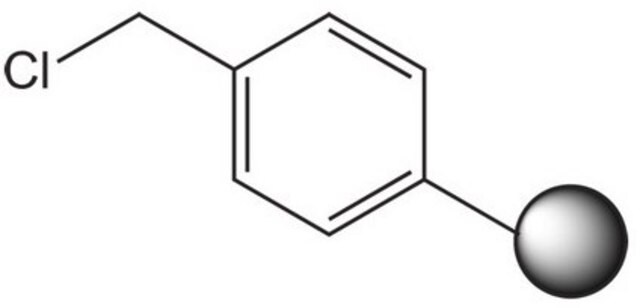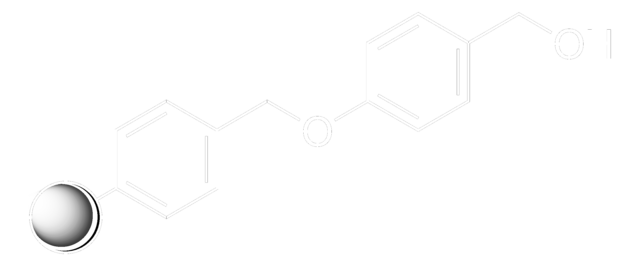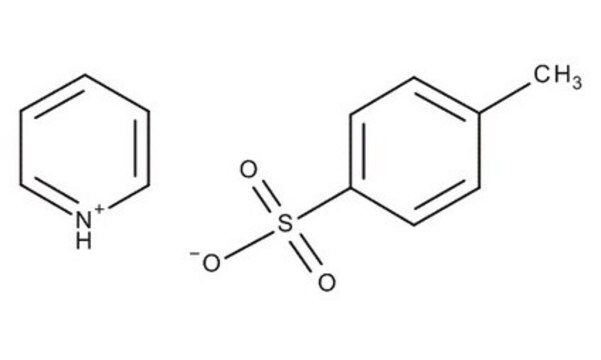8.55079
DHP HM resin (100-200 mesh)
Novabiochem®
Sinónimos:
3,4-Dihydro-2H-pyran-2-yl-methoxymethyl polystyrene (100-200 mesh), Ellman′s dihydropyran resin
About This Item
Productos recomendados
Nivel de calidad
Línea del producto
Novabiochem®
Formulario
beads
idoneidad de la reacción
reaction type: Fmoc solid-phase peptide synthesis
reactivity: alcohol reactive
fabricante / nombre comercial
Novabiochem®
aplicaciones
peptide synthesis
temp. de almacenamiento
2-8°C
Descripción general
Associated Protocols and Technical Articles
Protocols for Loading of Peptide Synthesis Resins
Literature references
[1] L. A. Thompson & J. A. Ellman (1994) Tetrahedron Lett., 35, 9333.
[2] O. B. Wallace (1997) Tetrahedron Lett., 38, 4939.
[3] G. Liu & J. A. Ellman (1995) J. Org. Chem., 60, 7712.
[4] E. K. Kick & J. A. Ellman (1995) J. Med. Chem., 38, 1427.
[5] J. S. Koh & J. A. Ellman (1996) J. Org. Chem., 61, 4494.
[6] J. Cossy, et al. (2000) Synlett, 3, 409.
[7] M. Ramaseshan, et al. (2000) J. Comb. Chem., 2, 615.
[8] M. Ramaseshan, et al. (2000) Tetrahedron Lett., 41, 4743.
[9] A. Bianco, et al. (2000) J. Org. Chem., 65, 2179.
[10] M. Steger, et al. (2001) Bioorg. Med. Chem. Lett., 11, 2537.
[11] A. Dahlgren, et al. (2003) Bioorg. Med.Chem. Lett., 11, 827.
[12] W. H. Pearson & R. B. Clark (1997) Tetrahedron Lett., 38, 7669.
[13] D. A. Nugiel, et al. (1997) J. Org. Chem., 62, 201.
[14] A. L. Smith, et al. (1998) Tetrahedron Lett., 39, 8317.
[15] S.-E. Yoo, et al. (1997) Tetrahedron Lett., 38, 1203.
[16] J. Beythien (Merck Biociences AG), personal communication.
[17] M. R. Tremblay, et al. (1999) Bioorg. Med . Chem. Lett., 9, 2827.
Ligadura / enlace
Nota de análisis
Appearance of substance (visual): beads
Loading (determined from the substitution of the Fmoc-Gly-ol loaded resin): 0.70 - 1.20 mmol/g
Swelling Volume (in CH₂Cl₂): lot specific result
The polymer matrix is copoly (styrene-1% DVB), 100 - 200 mesh
Información legal
Código de clase de almacenamiento
11 - Combustible Solids
Clase de riesgo para el agua (WGK)
WGK 1
Punto de inflamabilidad (°F)
Not applicable
Punto de inflamabilidad (°C)
Not applicable
Certificados de análisis (COA)
Busque Certificados de análisis (COA) introduciendo el número de lote del producto. Los números de lote se encuentran en la etiqueta del producto después de las palabras «Lot» o «Batch»
¿Ya tiene este producto?
Encuentre la documentación para los productos que ha comprado recientemente en la Biblioteca de documentos.
Nuestro equipo de científicos tiene experiencia en todas las áreas de investigación: Ciencias de la vida, Ciencia de los materiales, Síntesis química, Cromatografía, Analítica y muchas otras.
Póngase en contacto con el Servicio técnico